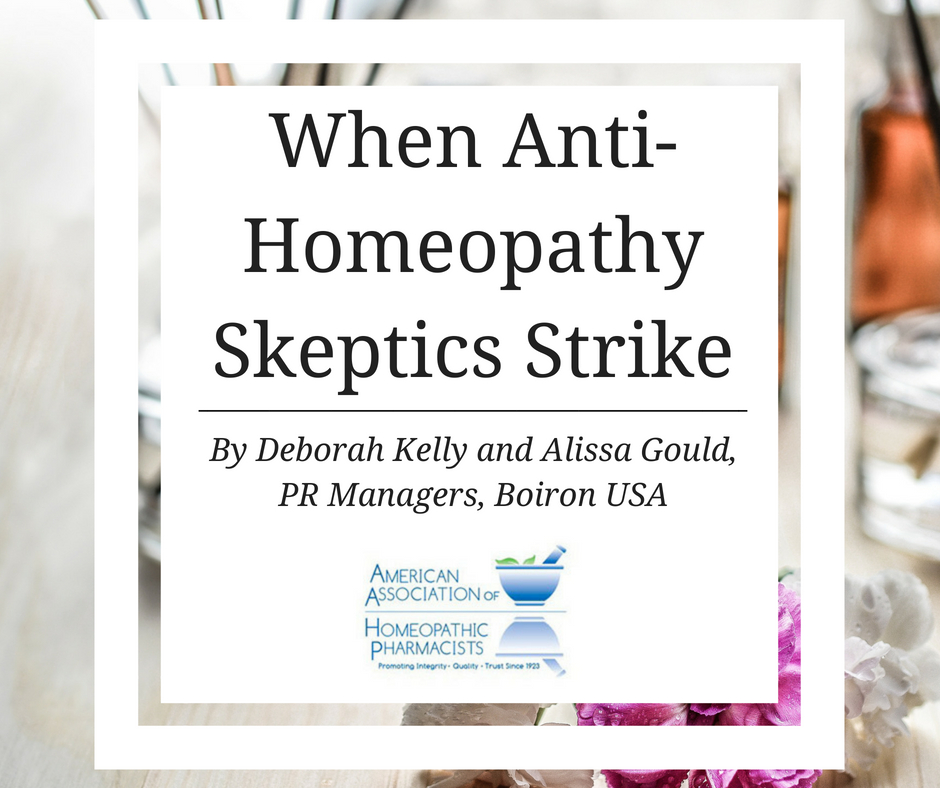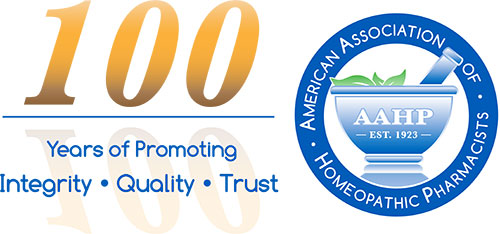When Anti-Homeopathy Skeptics Strike

By Deborah Kelly and Alissa Gould, PR Managers, Boiron USA
September 1, 2017
It’s typical for skeptics to fire away at anyone who posts or tweets positively about homeopathy. As manufacturers of homeopathic medicines, AAHP member companies are sometimes the target of such criticism, especially if they have an online presence.
Why Not to Engage
A good policy to have is to not engage with skeptics for several reasons.
Spend time engaging with a skeptic and you’ll soon find it is essentially an unwinnable battle. Most times, the criticism is coming from an individual who does not support the science behind homeopathy and will not be convinced otherwise by any communications—especially via Twitter’s 140-character limit. Social media is not the ideal place for in-depth, meaningful dialogue. The information needing to be relayed can be too complicated given social media’s limitations. Comments could also turn malicious in the anonymity of a public forum.
Consider your target market. Skeptics typically have a small number of like-minded followers, who also are not likely to be converted. In fact, many skeptics hail from the United Kingdom, which is beyond the market for most AAHP member companies.
Also, consider the short lifespan of most social media communications, such as an instantaneous tweet. If the message is not re-tweeted or replied to within a short amount of time, a rebuttal will only reopen the discussion and draw more attention to the issue.
Lastly, anti-homeopathy skeptics tend to be aggressive and mostly negative in nature, regardless of the topic. Using pseudonyms and emboldened by anonymity, online trolls thrive on provoking a heated response from their targets. A lack of a response will only frustrate them and most will soon move on to another target. While some may be tenacious, the majority of skeptics dilute their impact by aiming at too many targets at once.
What Can You Learn from Skeptics
Keep your friends close and your enemies closer, as the saying goes. Allowing skeptics access to your social media sites helps you keep an informed eye on their activities and concerns. It also allows you to gauge what part of your content has provoked a response.
However, there are some exceptions. Profanity, threats, and the like should never be tolerated. Blocking access is acceptable in those cases. Facebook also offers a handy feature which allows for a comment on a post to be hidden from your audience, yet keeps the remark visible to only the person who made the comment and his or her circle of friends.
What You Can Do
As a rule, avoid this type of distraction from your mission to provide meaningful education and quality medicines to the thousands of consumers and patients who rely on homeopathic medicine. Your energy and resources are better spent on educating those who are open-minded and respectful of this form of therapy.
A 2015 University of Southern California study found that “emotions spread virally” through Twitter feeds with positive emotions far more likely to spread than any negative ones. Therefore, the best tactic to handle negative comments on social media is to offset them with a barrage of good news and information, including sharing and acknowledging your consumers’ wonderful experiences with your medicines.
